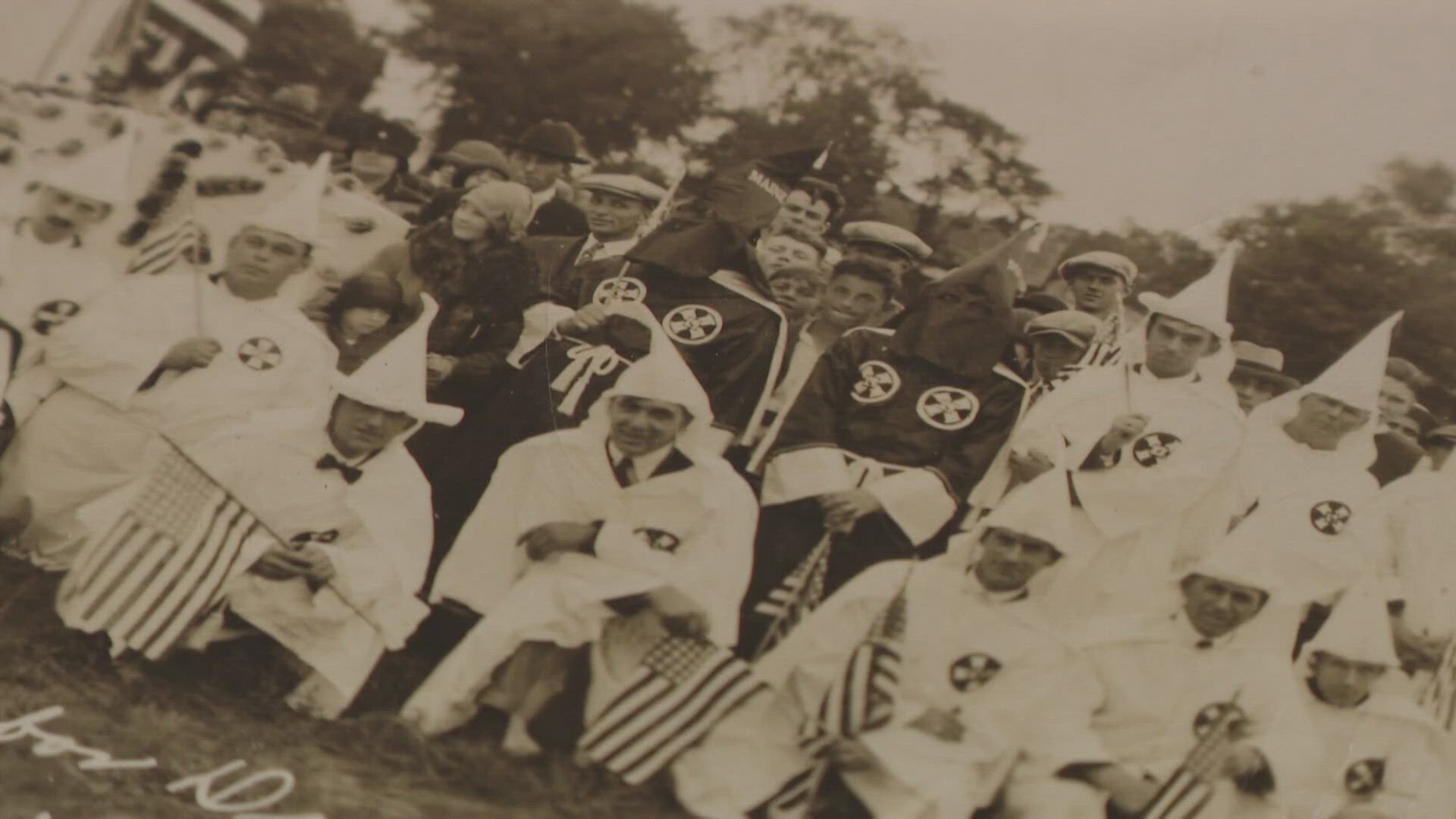BIDDEFORD, Maine — The mayors of Biddeford and Saco embraced on a bridge connecting their two cities on Tuesday, as part of a ceremony reflecting on the 100th anniversary of a Ku Klux Klan march in Saco.
In September of 1924, about 300 Klansmen held a rally against French Canadian and other Catholic immigrants who had immigrated to work in Maine’s mills. Racist language was directed at Black Americans too, historians say.
Ultimately, the march was halted when the group tried to cross into Biddeford, where many of the Catholics lived.
The city’s mayor at the time, Edward Drapeau, is credited with stopping them.
“I think its important how we remember the past and how we came together then, so that we can do that today,” Biddeford’s current mayor, Marty Grohman, said at Tuesday’s event. “It’s shocking to hear some of the things that took place.”
Dozens of residents gathered for Tuesday’s ceremony, which included speeches from historians, elected leaders, and immigrant rights activists. While many celebrated the strides that have been made in Biddeford and Saco since that dark day one century ago, Saco Mayor Jodi MacPhail emphasized that there is much still to be done.
“We would like to think that we’ve moved forward, that we’ve learned from the past. But every day we see that we haven’t,” MacPhail said Tuesday.
Indeed, hate is still a stubborn issue in Maine. Last year, groups of Neo-Nazis demonstrated in downtown Portland and outside the Blaine House in Augusta. One white supremacist, Christopher Pohlhaus, tried and failed to establish a training base in rural Penobscot County.
“Things have not changed,” MacPhail added.
The gathering to remember a complex moment between two neighboring Maine communities 100 years ago brings a reminder of the courage past generations have displayed in the face of hateful words and actions.
As Marcee Winthrop asks, “Are we going to be bigoted and be against people? Or are we going to be open-minded?"

